Community "Nihongo Kyoshitsu" Activities Report, Vol. 3
In our third report, we are introducing "HOPENECT" that conducts activities in Ota City!

There are 23,102 foreign residents living in Ota City (as of January 1, 2022, according to a Tokyo Metropolitan Government survey). This is the sixth largest number of foreign residents out of all the municipalities in Tokyo.
To find out what kind of goals activities HOPENECT is aiming for and what kind of activities it is doing in Ota City, we talked with the group's representative, Niwa-san.
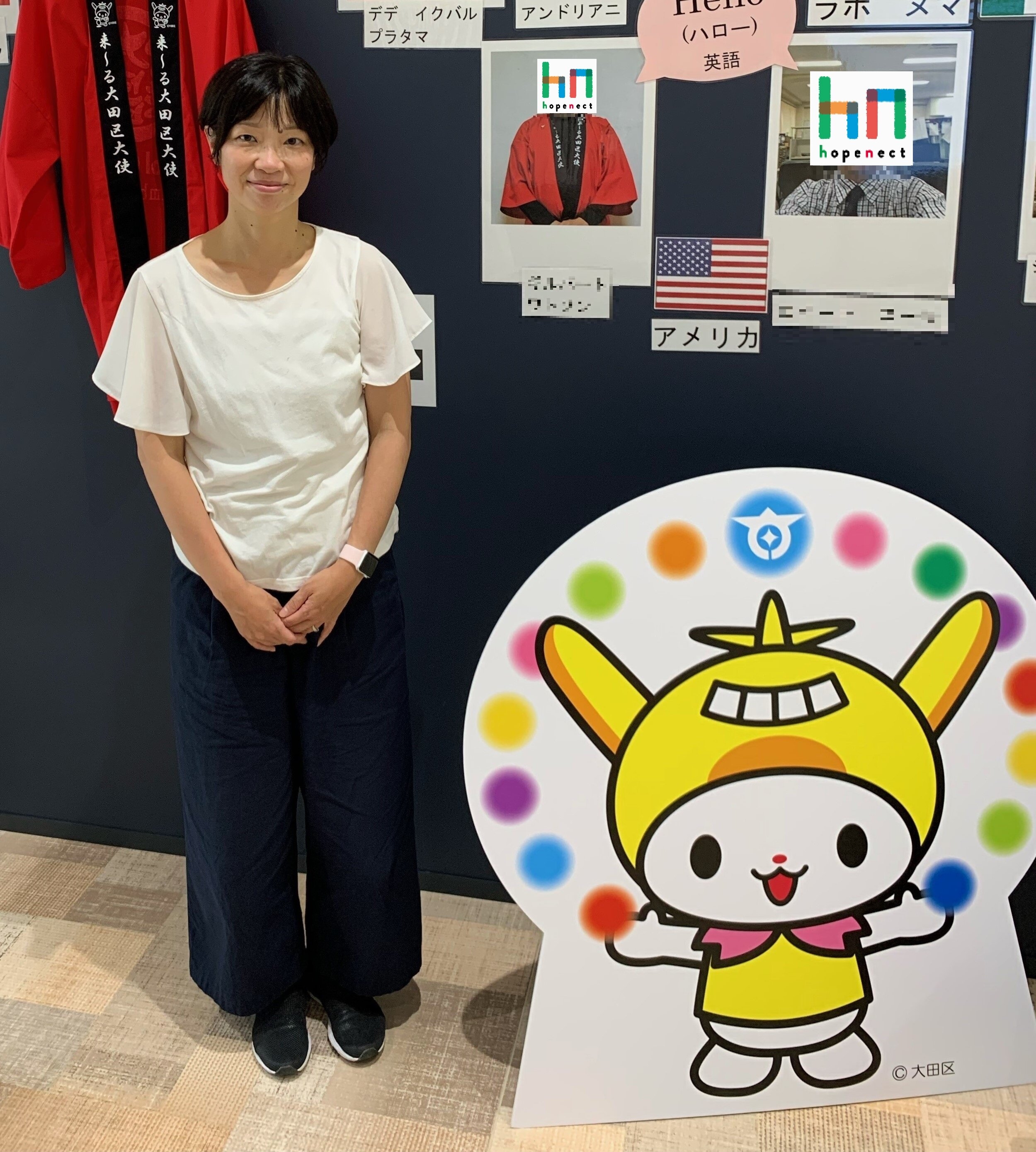
HOPENECT's representative, Niwa-san
We want to be an organization that connects various peoples' hopes
Niwa-san wanted to start a social business for children with foreign roots. While attending business school, she was volunteering at the Global City Ota Cooperation Association to help support the learning and studies of children with foreign roots. She then established HOPENECT on September 1, 2021, thinking that she would like to work through her own organization, and HOPENECT has been holding classes since April 2022.
The name "HOPENECT" was coined by combining the words "HOPE" and "connect," and has the meaning of being an organization that connects various peoples' hopes.
In addition, HOPENECT is looking for "HOPENECTers," supporters who can help children with foreign roots with their homework and studies, and who can interact with them. The requirements to be a HOPENECTer are to have a passion to teach children and to understand children's characteristics. The HOPENECTers themselves also seem to really enjoy it.
From the perspective of wanting children to interact with a variety of adults, people of all ages have become HOPENECTers, and currently there are five HOPENECTers, ranging in age from people in their 20s to 60s.
Valuing speech, letting people speak and naturally form complex sentences
Moving on to HOPENECT's activities, HOPENECT is currently offering a "Japanese Lesson for Kids " for children and a "Japanese Lesson for Parents" for adults at the Ota International Exchange Center ("Minto Ota"). To find out more, we visited both classes. On this day, three child students and one adult student were participating.
In the classroom, Niwa-san emphasizes "Valuing speech, letting people speak and naturally form complex sentences." Even in schools, speaking in simple sentences (sentences with only one predicate) is accepted and is not often particularly corrected. Therefore, through joking and talking, the students are encouraged to naturally speak in complex sentences (sentences with two or more predicates) and are made conscious of correcting themselves.
In fact, in the "Japanese Lesson for Kids" they begin with self-introductions and use onomatopoeia to give an explanation about natto. On top of that, the children practiced speaking in a variety of methods, such as games using cards and creating their own stories.
In the "Japanese Lesson for Parents" as well, in addition to speaking practice according to the textbook, the students had fun with speaking practice by taking American jokes that the students said and then translating it into Japanese.
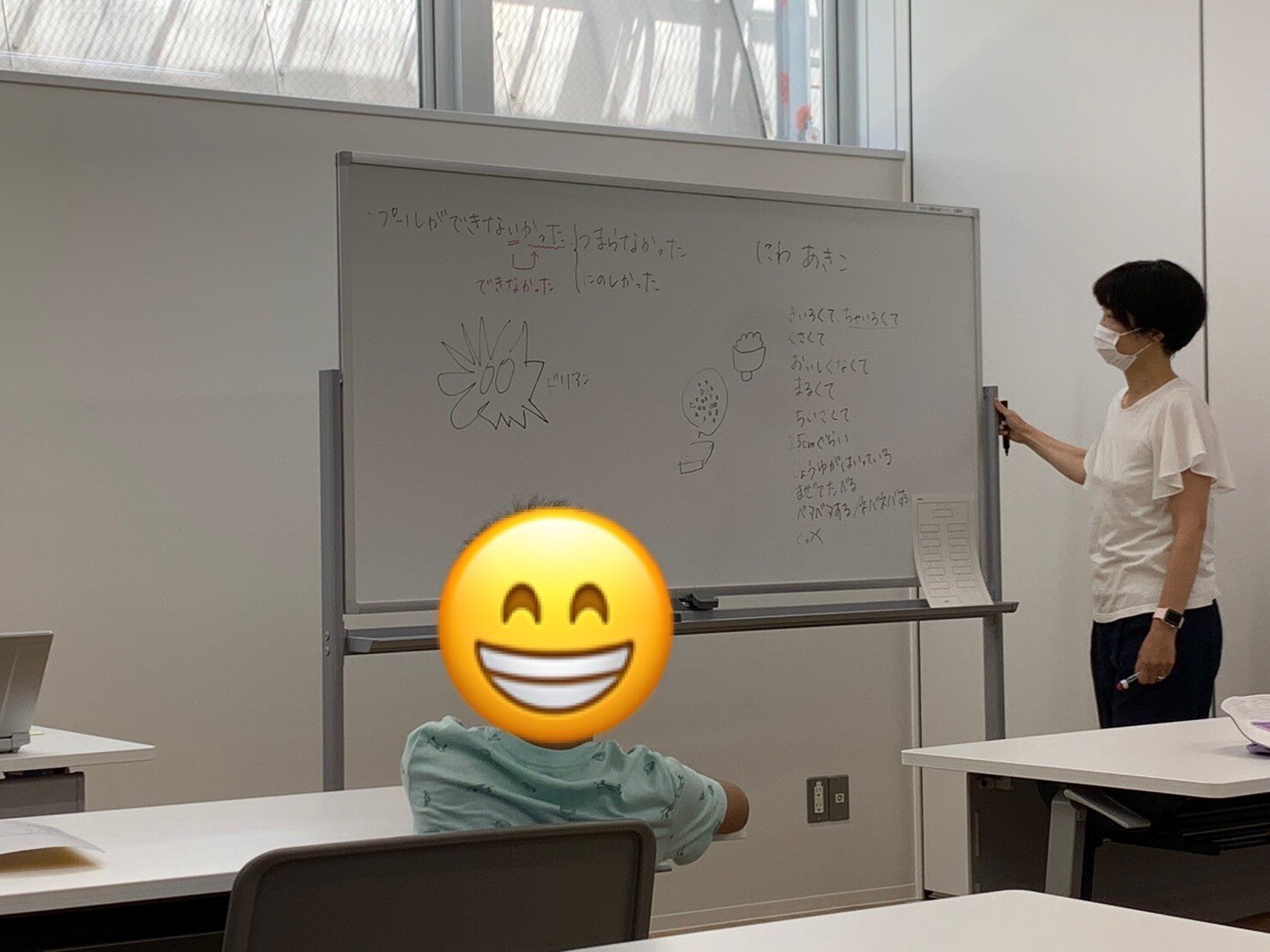
Explaining about natto
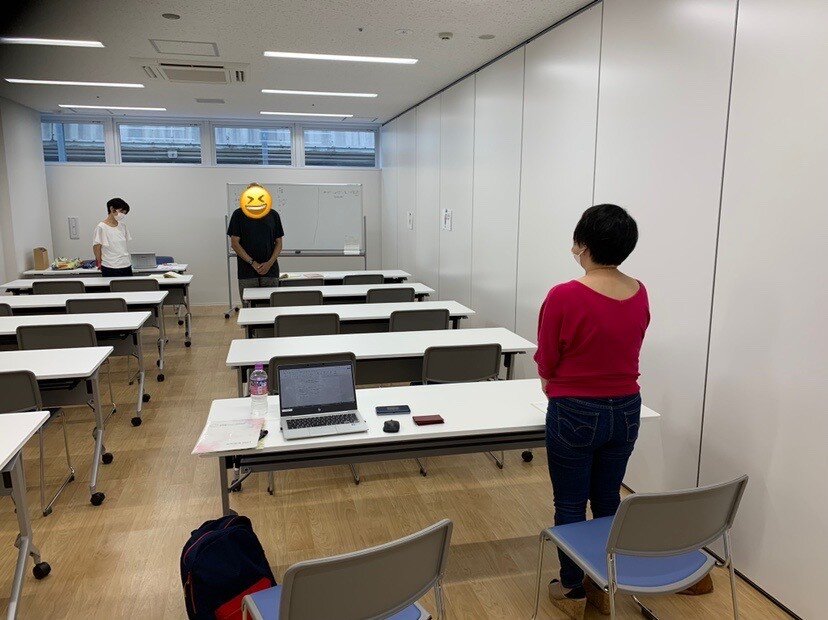
We also participated a bit in some classes
Writing skills are also in the "Japanese Lesson for Kids" because writing is something that cannot be avoided in their school activities. Therefore, the children are given a "One Line Diary" as homework. By having the children write a short one-sentence diary, Niwa-san can learn about their daily lives and nurture their writing skills.
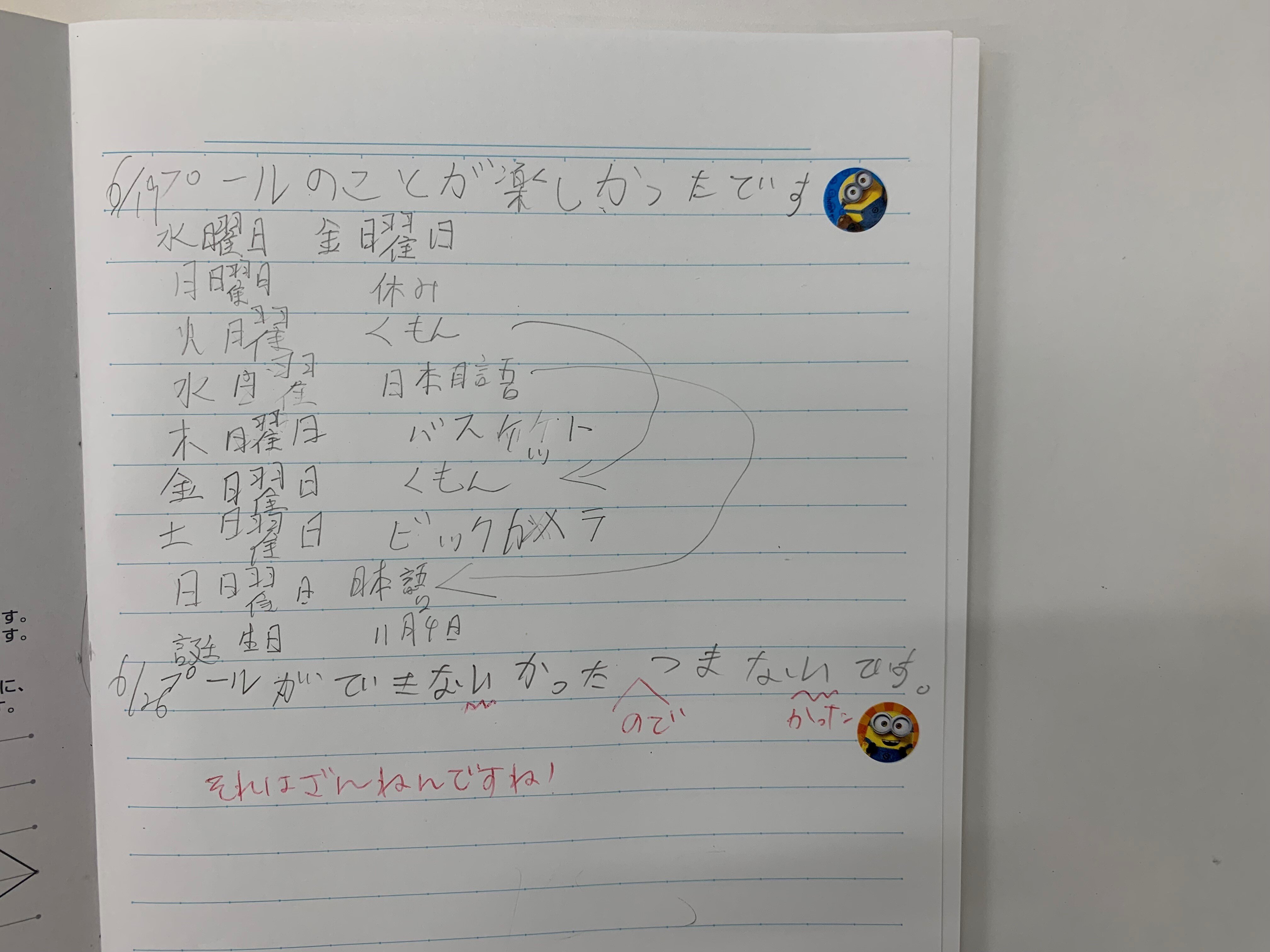
A "One Line Diary" for homework
Valuing "Rapport"
The thing that made the biggest impression when we visited the classroom this time was that the students, both the children and the adults, seemed to be really enjoying themselves. In order to create such an atmosphere, Niwa-san values "rapport." "Rapport" was originally a term in psychology and refers to the establishment of a relationship of mutual trust between a therapist and client in which they can exchange their emotions with peace of mind.
In order to build such relationships of trust, Niwa-san believes that "People only talk when they know that the other person accepts them," and Niwa-san is very conscious of "Never denying people, waiting for them to open their hearts, and not correcting them too much if they make mistakes."
On this day, there was a student who was participating in the "Japanese Lesson for Kids" for the first time. At first the student seemed shy and wouldn't speak at all, but, as time went by, it was really impressive to see them enjoy participating in the class.
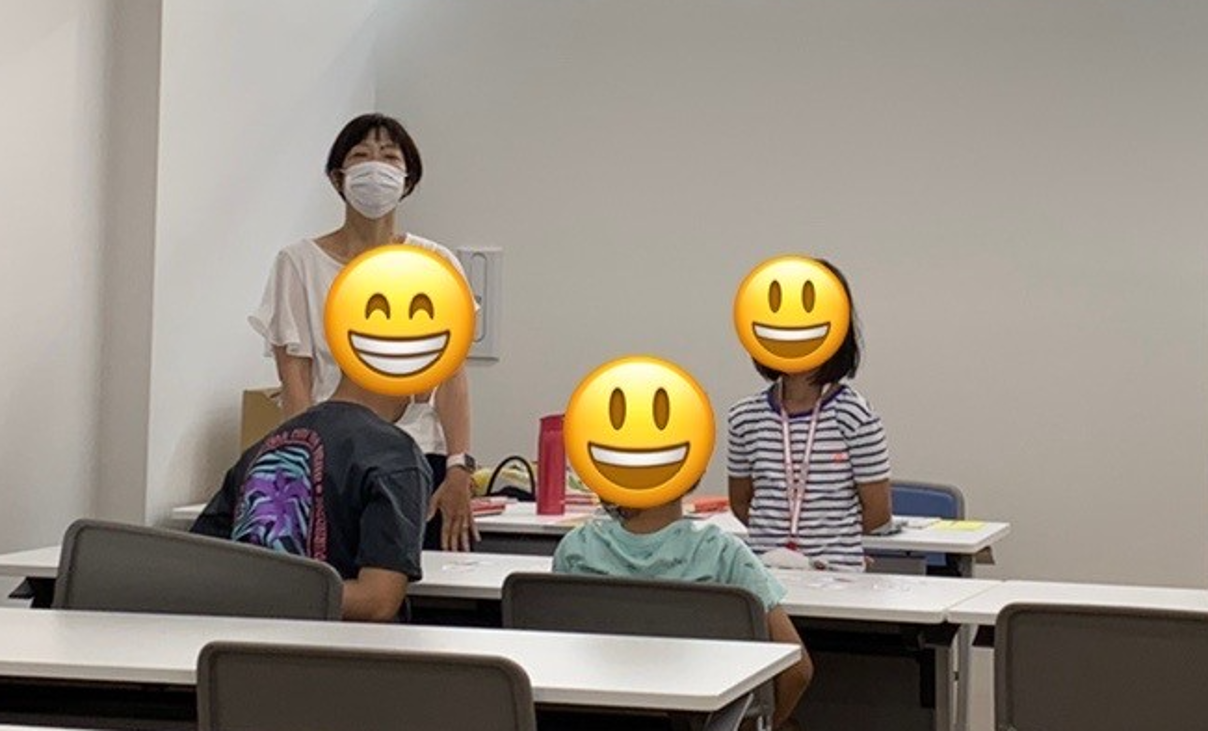
Children enjoying a class that uses cards
So that no child is left behind
During this fiscal year, HOPENECT is planning to hold an event for children with foreign roots at Ota City's Michizuka Elementary School. In the future, HOPENECT will work with the Board of Education and other organizations to increase the number of HOPENECT classrooms in other schools in Ota City, with the goal of ensuring that, in Ota City, "no child is left behind."
Finally, Niwa-san gave a message to people with foreign roots.
"You can stay here. I'll be waiting for you."
Having lived abroad herself, Niwa-san said that she felt relieved just by having someone show an interest in her. Niwa-san values relationships of trust, and these words felt just like something she would say.
HOPENECT's activities are expanding, and we are looking forward to seeing the smiles of even more children.
If you are interested in HOPENECT's activities or in being a HOPENECTer, then please visit their website below. Parents and children are also encouraged to participate in the classes.
More Community "Nihongo Kyoshitsu" Activities Reports will be coming in the future. Until next time!
By: YS
